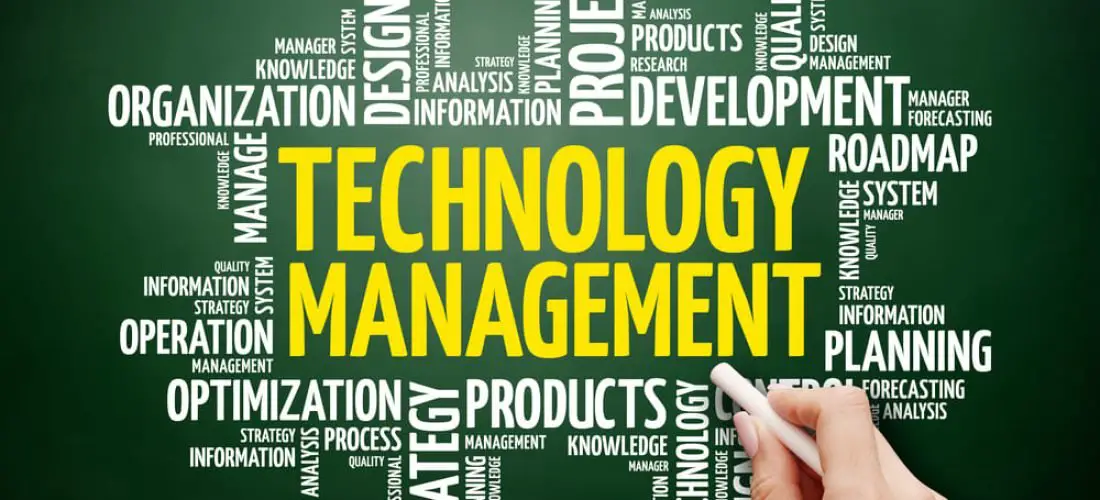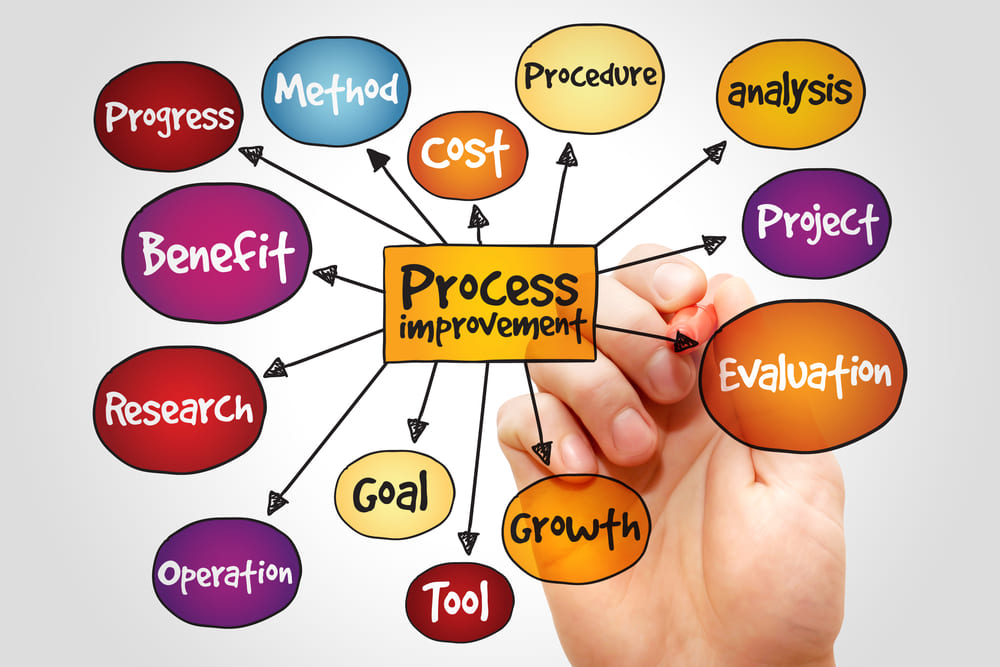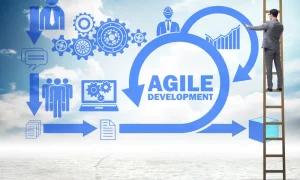To thrive in the technical program manager role, mastering a blend of strategic, technical, and interpersonal skills is key. This role demands coordinating interrelated technical projects, developing strategies and roadmaps, leveraging technical skills and experience, and providing guidance and empowerment to teams. Our straight-to-the-point breakdown of the top 10 skills for technical program manager targets the competencies you need to stand out in 2024. Expect an in-depth look at the hard and soft skills that will propel your career in the field of technical program management.
Key Takeaways
- Technical program managers must possess a deep understanding of technical details, such as software development life cycles, systems analysis, and cloud computing, to effectively manage complex projects and align with organizational goals.
- Agile project management skills, including proficiency in Scrum and Kanban methodologies as well as the use of Agile metrics, are essential for TPMs to manage projects flexibly and adjust to changing requirements efficiently.
- Leadership, communication, and interpersonal skills are critical for TPMs to build cohesive teams, resolve conflicts, and foster an environment of collaboration and empathy, ensuring successful project outcomes.
Technical Knowledge and Expertise
Technical Program Manager (TPM) role often comes with navigating through fine details, understanding software development cycles and solving complex system analyses. The explosion of cloud computing in this field explains the need for TPMs to have varied types of skills, and be good at all of them!
Do not worry since mastering these technical aspects can be your hidden ace as the technical program manager. The experts in technical program management are sought after in the competitive market of today. Technical skills are important for technical program managers who head technical teams and make strategic decisions.
Software Development Life Cycle
Complexities of a software development life cycle are like a ship in stormy waters; which you have to navigate. An in depth knowledge of each stage, with the main computer science aspects relating to planning and requirements gathering phase, design and development phase, testing phase, and deployment phase, is necessary.
An experienced senior technical program manager is like a seasoned captain who leads the team to the successful project delivery. By their experience in management of technical programs and the deep knowledge of the process of software development projects, program manager assures the smooth pace of delivering high-quality products.
Systems Analysis
Systems analysis is the process that helps TPMs to steer through complicated project situations. Through examination of the current systems and definition of the project needs, TPMs can come up with solutions that closely match the objectives of the organization. In other words, this situation is analogous to deciphering a treasure map, where X represents the point of optimal efficiency and project success.
Cloud Computing
Cloud computing is an essential tool for organizations in the current digital transformation era as it enables them to deploy and use applications efficiently. This innovative technology is indispensable for those who are in technical program management. It is similar to being able to tenderize the language of stars that allows you to navigate your team through huge world of modern technical programs with confidence.
Agile Project Management Skills
Visualize a conductor conducting an orchestra. The score is the project plan, and the ensemble of musicians are the team working on the project. However, score changes are typical in TPM, and Agile is an example of a conductor conducting an agile group of performers, an instrument for optimizing workflow, prioritization of tasks, and in the end, for making decisions under pressure.
Scrum Framework
Scrum plays the role of the orchestra conductor that brings all such Agile team members together to ensure smooth flow. The simplicity of the approach enables TPMs to adequately control the implementation of complex projects and ensure high productivity. Just like a beautiful piece of music, Scrum in project management brings harmony, a balance between all the elements, which leads to the desired results that keep all the stakeholders satisfied.
Kanban Methodology
In the domain of the Agile methodology, Kanban is thought to be the summit. This framework focuses on on-going improvement, adaptability and lean workflow.
Just as a crescendo in music builds up to the climax, Kanban can be used by TPMs as a tool to ensure the successful completion of their projects.
Agile Metrics
In Agile process, metrics are the reactions of the stakeholders. They inform the TPM on the attractiveness of their performance and possible areas of improvement. They are very important for TPMs in considering the progress and performance of a project and trying to make each project a success.
Further Reading: Mastering Agile Methodologies: Ultimate Guide To Transformative Project Management
Leadership and Team Building
A nimble conductor is the key to a flowing melody while well-directed leadership and teamwork is the core of good project. Project management and a conductor in an orchestra have a lot of common since they both require the skills of communication, conflict resolution, and understanding emotions of musicians.
In the end, like the most intriguing symphonies that just flow when each musician feels valued and inspired in their part. In the same vein, good project results can be produced through making sure that team members feel heard and appreciated under the competent leadership of the project manager.
Communication Skills
Communication acts like the rhythm that tunes musical ensemble to unity and harmony. It ensures that every player understands their role and how it adds to the whole performance. Also, effective accumulation is of much importance in the project teams. It assures that all members are aware of their duties, aims of the project, and creates a feeling of participation and significance in the eyes of the team’s participants.
Conflict Resolution
Just like a musical conductor who unites different musicians and maintains harmony, a TPM (Technical Program Manager) has to resolve team conflicts that can result in a friendly work atmosphere. It includes the use of diplomacy, appreciating the perspective of others, and fair judgment.
For each note has its meaning in the symphony even if it seems disharmonious at first sight.
Empathy and Emotional Intelligence
As an orchestra conductor is responsive to the emotions of his players, a good leader is sensitive to the feelings of their team members and makes use of this knowledge to achieve amazing outcomes. In a similar manner, an emotionally intelligent TPM is able to build firm relationships with his/her team and create a productive and collaborative work atmosphere.
It is akin to striking the right note precisely in time, thus creating music that resonates with the entire orchestra.
Further Reading: Emotional Intelligence In Project Management: A Guide To Success
Strategic Thinking and Decision Making
To be a good symphony conductor is a complex of high strategic thinking and effective decision making. The tempo, volume and focus of every musical part need to be precisely set by the conductor. Likewise in project management as a TPM (Technical Project Manager), strategic decisions pertaining goals, risk management strategies, task prioritization methods, performance analysis are critical to success.
Just the same as the process of composing a symphony in which every decision have an influence on the final performance, the role of TPM is to use their strategic thinking skills to balance every aspect of the project together to produce a perfect outcome.
Risk Assessment
The process of risk assessment is similar to the tuning process described by the tuners of instruments, where risk identification is able to identify potential obstacles which could disrupt the flow of a project. Proactivity in recognizing and managing possible risks is critical for TPMs to achieve positive and smooth results. Just as musicians need to fine-tune their instruments, TPMs need to prepare for unexpected challenges in their projects.
Further Reading: Risk Management: Ultimate Guide to Navigating Uncertainties
Prioritization Techniques
In the same manner that a conductor chooses which parts of the music to highlight, a TPM must decide which tasks to prioritize in order to reach project objectives. Here the prioritization techniques come into play, allowing the TPM to identify the tasks that will cause the most damage and should be addressed first.
Performance Analysis
Just like a conductor analysis the orchestra practice to make certain adjustments on the big day, TPMs have to evaluate project progress and technical aspects to make logical decisions from data.
This is like tuning every instrument of an orchestra to make a perfect sound of them together.
Problem Solving Abilities
In the same way that a conductor manages dissonance and rhythmic discrepancies, a TPM performs a critical function in eliminating hurdles in order to achieve project success. From identification of problems’ source to the development of ingenuity and flexibility in the face of changing project requirements, problem-solving techniques are a cornerstone in any TPM’s efficacy.
Root Cause Analysis
Root cause analysis is like finding an unpleasant noise in the middle of a symphony. This allows TPMs to identify the root cause of the problem, and thus, to be able to implement effective solutions and drive progress on their project.
Creative Thinking
Creativity, however, can turn a satisfactory performance into an outstanding one. Like appending an unusual variant to quite a well-known musical composition, this way can make the final product really unforgettable.
In similar ways that musicians apply creativity to improve classical pieces, TPMs have the capability to use creativity as a tool through which they can address project barriers with new and innovative measures that eventually lead to greater results.
Adaptability
The second trait of a project manager is adaptability, as an orchestra is adapt to the tempo of the music. In the dynamic environment of project management, TPMs have to control their position and adjust to the evolving needs and situations of a project.
Much like a musician slowing down or speeding up at a performance based on the mood that arises, TPMs must be adaptable in order to achieve success despite changes that may occur within projects.
Partner and Vendor Management
A symphony orchestra often works with solo artists and other groups, so TPMs need to:
- Coordinate with partners and suppliers to achieve project goals
- Cultivate strong partnerships
- Negotiate contractual agreements
- Monitor performance levels
This requires proficient communication abilities, effective organization skills, as well as technical expertise.
Managing a complex ensemble of musicians is similar to overseeing various team members in order to create a harmonious tune.
Relationship Building
Developing the relationships with the collaborators and suppliers is like an ongoing tune with the bandmates. It includes understanding, trust, and communication. Upon establishment of these parts, the result is a performance which is seamless that pleases the spectators.
Contract Negotiation
To a professional perspective, the act of negotiating a contract is the same as an orchestra performance. It involves looking at and negotiating the provisions, keeping in mind the aim to end up with an amicable deal. Just as with writing a beautiful piece of music where every note harmoniously fits in, making a deal is an integral part of the entire chain that leads to the desired results.
Performance Monitoring
In the same way that a conductor controls the execution of the musicians, the role of a TPM is to oversee partners and vendors to ensure that all the involved parties provide efficient contributions. This finally leads the project to success.
Business Process and Financial Acumen
In the same way that a conductor should know the business side of music and take care of the financial aspects of their orchestra, TPMs must be able to comprehend business processes and financial aspects. TPMs are involved in all aspects of project budgeting, investment analysis, as well as process improvements and hence, they are the custodians of the economic success of their projects.
Budgeting and Cost Control
Like in managing a symphony orchestras finances, TPMs should budget and control project costs to make the project financially viable. It requires to closely watch costs and revenues.
In the same way that an orchestra requires a good budget to put on a successful show, TPMS need to manage project budgets effectively to achieve their goals within a workable financial framework.
Return on Investment Analysis
Looking at the return is as a performance being successful by the ticket sales and audience feedback. For TPMs, it is important to evaluate project investment so that it helps to maximize the return and ensures that the project provides significant benefits for its cost.
Business Process Improvement
You need to compare optimization of business processes with tuning an orchestra. TPMs identify and implement process improvements to improve project outcomes through advanced project management methodologies.
The task is like practicing a musical performance until it is accomplished perfectly during the real show.
Customer Satisfaction and Product Delivery
Like an orchestra to their audience, TPMs strive to please the customer, and deliver products effectively. This includes development of user-friendly product designs, adoption of comprehensive quality assurance processes, and production of quality products at the end.
It is likened to producing an electrifying piece of performance that would leave the onlookers agape.
User Experience Design
Developing a good user experience is analogous to the fact that a successful symphony is created. In the same manner that composers want to hit the right note, TPMs must make products that fulfill user needs and even surpass the expectations, only this way will the highest customer satisfaction be reached.
Quality Assurance
Analogous to practicing a musical piece over and over again until it comes out perfect, quality assurance practices are crucial for TPMs to assure that the final outcome is of the highest level of perfection. This results in an excellent and well-appreciated show before a clapping crowd.
Summary
Like in a symphony grand finale, our journey through the top 10 skills for TPM success ends with a high note. We have discussed the significance of technical knowledge, agile project management skills, leadership and team building, strategic thinking, problem-solving capabilities, partner and vendor management, business process and financial acumen, and last but not least, customer satisfaction and product delivery. And finally, we need to understand that, in the same way as one conducts an orchestra, the effective management of a technical program is about synchronizing and harnessing all these skills.
Frequently Asked Questions
What is the skills of the technical manager?
The effective technical managers should have the outstanding strategic thinking skills and have the deep understanding how technology relates to the business objectives. They are critical in the implementation of strategic plans and the recognition of future technological requirements for the success of their organization.
What is the best quality of technical program manager?
Strong core skills of technical program management are the most crucial for being a technical program manager as they are primary to the role. These skills are an important factor in the success in this industry.
Profession in these fields is essential for the success of the program manager and managing all the technical programs processes well.
Why is technical knowledge important for a TPM?
Technical knowledge is very important for a TPM since it allows them to make informed decisions and manage problems effectively by understanding many aspects of software development such as the life cycle. The other skill of such expertise that this position requires is system analysis and cloud computing aspects.
How does a TPM build strong relationships with partners and vendors?
An effective TPM focuses primarily on open communication, frequent updates, quick problem resolution and clear contract agreements in forming strong relationships with partners and vendors. These principles contribute to the creation of trust and cooperation.
How does a TPM ensure customer satisfaction and successful product delivery?
Through prioritizing user experience, establishing quality assurance procedures, and providing top-notch products, a Technical Product Manager (TPM) guarantees customer satisfaction and effective product distribution.











